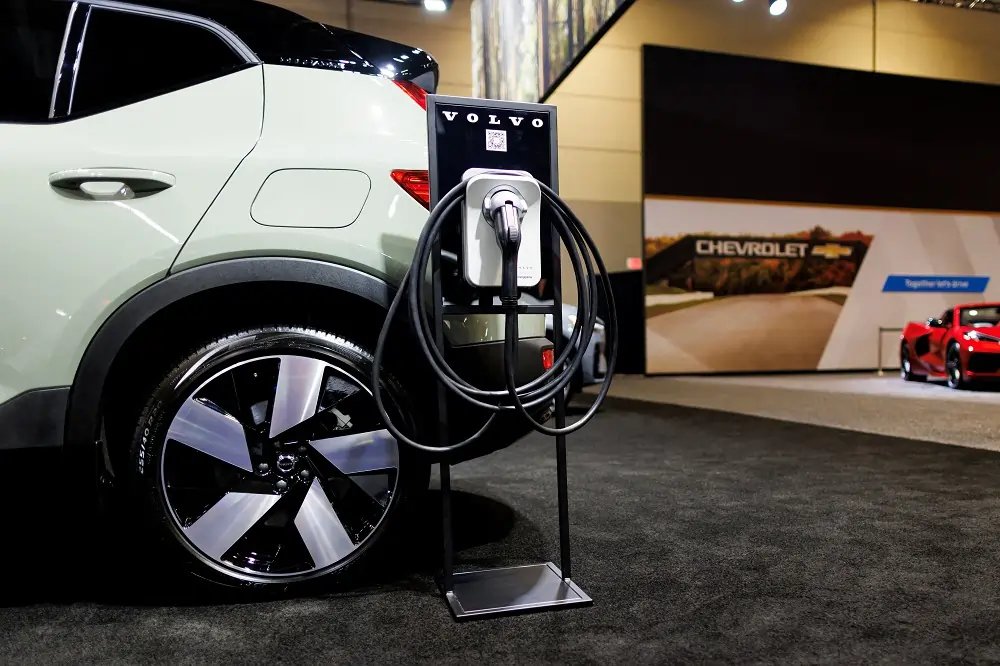Trump’s tariffs could cost carmakers up to 17% of combined core profits, S&P says
Published by Jessica Weisman-Pitts
Posted on November 29, 2024
2 min readLast updated: January 28, 2026

Published by Jessica Weisman-Pitts
Posted on November 29, 2024
2 min readLast updated: January 28, 2026

(Reuters) – European and American carmakers are set to lose up to 17% of their combined annual core profits if the U.S. imposes import tariffs on Europe, Mexico and Canada, S&P Global said in a report on Friday, warning of potential credit downgrades.
(Reuters) – European and American carmakers are set to lose up to 17% of their combined annual core profits if the U.S. imposes import tariffs on Europe, Mexico and Canada, S&P Global said in a report on Friday, warning of potential credit downgrades.
Premium automakers Volvo and Jaguar Land Rover, who mostly produce in Europe, and groups General Motors and Stellantis, who assemble high volumes of cars in Mexico and Canada, are most exposed to the threat of higher tariffs, S&P said.
WHY IT’S IMPORTANT
President-elect Donald Trump on Monday said he would impose a 25% duty on imports from Canada and Mexico until they clamped down on drugs and migrants crossing the border, a move that would appear to violate a free-trade deal between the three countries.
Analysts and experts fear the tariffs could be more damaging for European car makers like Volkswagen and Stellantis and their suppliers than any direct tariffs on EU goods.
KEY QUOTES
“We expect mitigating actions will make potentially higher tariffs manageable, but the combined effects of tariffs, tighter CO2 regulation in Europe from 2025, and earnings pressure from stronger competition in China and Europe could increase the risk of downgrades”, S&P said.
“Rating transitions could occur where the tariffs compound other headwinds for 2025,” it added.
CONTEXT
Starting in 2025, the EU will lower a cap on average emissions from new vehicle sales to 94 grams/km from 116 g/km.
BY THE NUMBERS
S&P said a worst-case scenario for automakers includes a 20% tariff on U.S. light vehicle imports from the EU and the UK, and a 25% tariff on imports from Mexico and Canada.
In this scenario, GM, Stellantis, Volvo and Jaguar Land Rover could see more than 20% of their projected adjusted EBITDA at risk in 2025, in S&P analysis.
The risk is between 10% and 20% for Volkswagen and Toyota, and below 10% for BMW, Ford, Mercedes-Benz and Hyundai.
(Reporting by Alessandro Parodi in Gdansk, editing by)
EBITDA stands for Earnings Before Interest, Taxes, Depreciation, and Amortization. It is a measure of a company's overall financial performance and profitability.
Adjusted EBITDA is a modified version of EBITDA that excludes certain one-time or non-recurring expenses, providing a clearer view of a company's ongoing operational performance.
Explore more articles in the Business category











